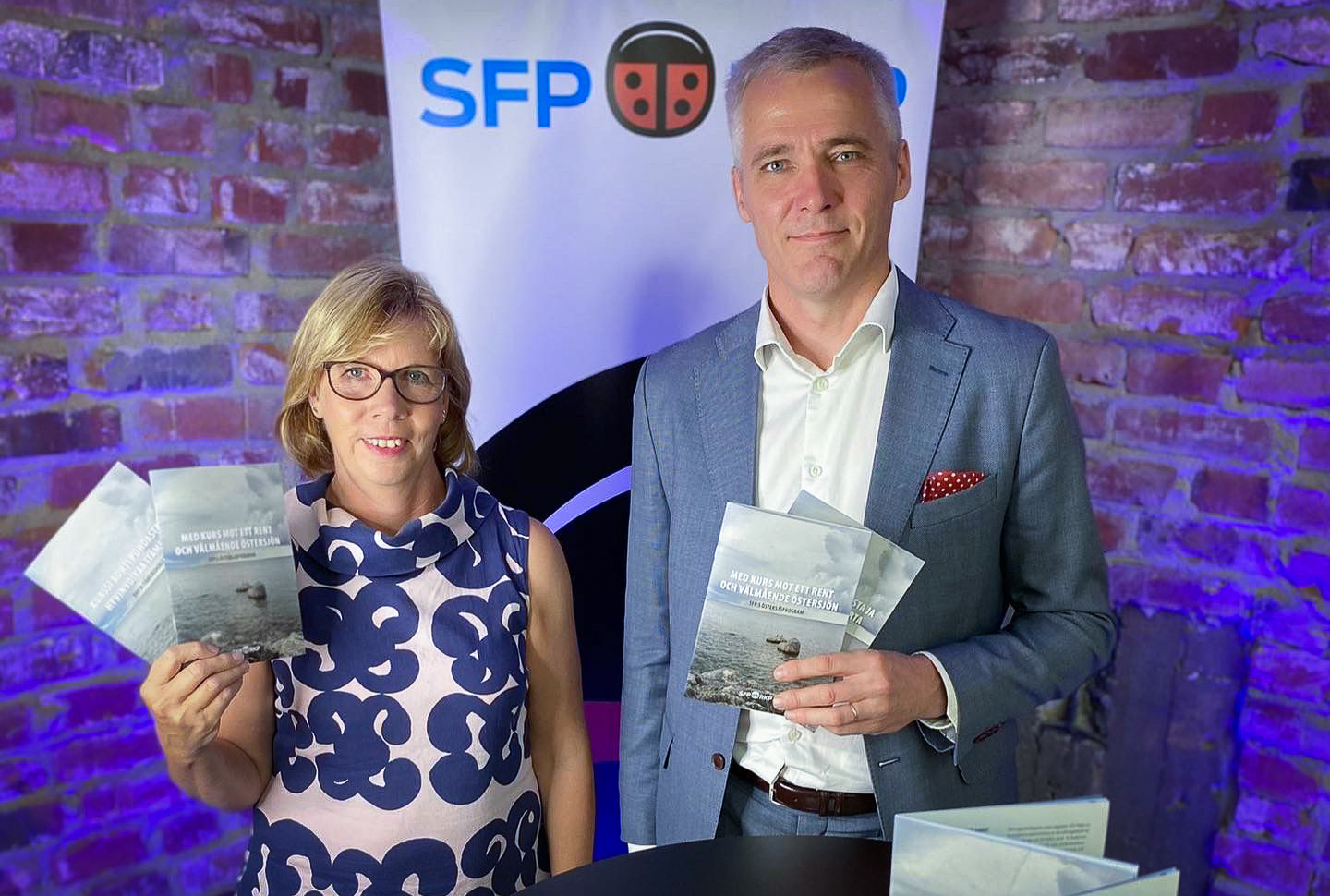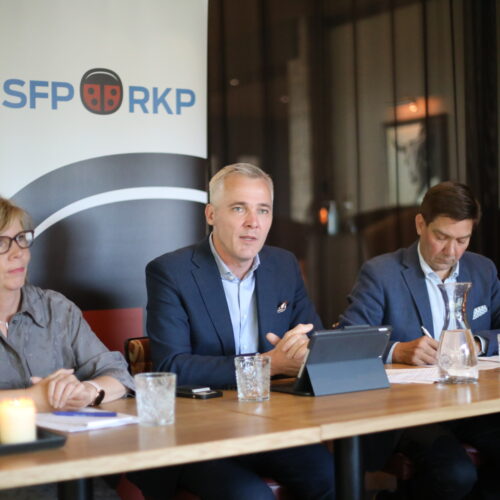“The Baltic Sea is not doing well. Every day we witness blue-green algae blooms taking over our bays and beaches.We must take decisive action to prevent eutrophication. We need an extensive package of short- and long-term measures for improving the state of the Baltic Sea. At SFP, we are prepared to work for safeguarding our archipelago for the future,” explains Anna-Maja Henriksson, Minister of Justice and SFP Party President.
On Baltic Sea Day (25 August), the Swedish People’s Party published its new Baltic Sea Programme. Anders Adlercreutz, the Chair of the Swedish Parliamentary Group and the head of SFP’s Committee for Environmental Policy, led the preparatory work for the programme.
“The most critical action is to reduce nutrient runoff into the sea. We want to implement subsidies within agriculture for recycling and transporting manure phosphorus, to make its reuse more viable for farmers. Instead of being spread onto fields, farmyard manure should be utilised for biogas production. We also want to promote cane mowing as a method for circulating nutrients from our shores, and to develop subsidies for starting up production chains that make use of cane grasses,” Adlercreutz explains.
SFP wants to make sure that polluting the Baltic Sea is unprofitable. We are calling for effective methods, preferably on a par with international emissions trading, to reduce pollution. Emissions from shipping must also be reduced.
“Although many of our ports already offer opportunities for free waste water disposal, most cargo ships are still dumping their waste water into the Baltic Sea. It is perfectly legal, as long as they are far enough from the shore.We want discharges of any sort of waste or cleaning water into the sea to be outlawed – not only into the Baltic Sea but also on a global level. All forms of waste discharges must be prevented, so we also want to stop the dumping of snow into the Baltic Sea,” Henriksson says.
“Climate change also affects the Baltic Sea and higher water temperatures only reinforce eutrophication. This goes hand in hand with biodiversity loss, which also requires action. Therefore we propose implementing a voluntary water protection programme similar to what we have in relation to forests for private landowners, by which those taking part in the programme receive compensation. A healthy Baltic Sea with proper marine biodiversity is something from which we all will benefit,” Adlercreutz says.
SFP published its Baltic Sea Programme on Baltic Sea Day, Thursday 25 August 2022.
The content of the programme is available:
- SFP Baltic Sea Programme (in Swedish)
- SFP Baltic Sea Programme (in Finnish)







